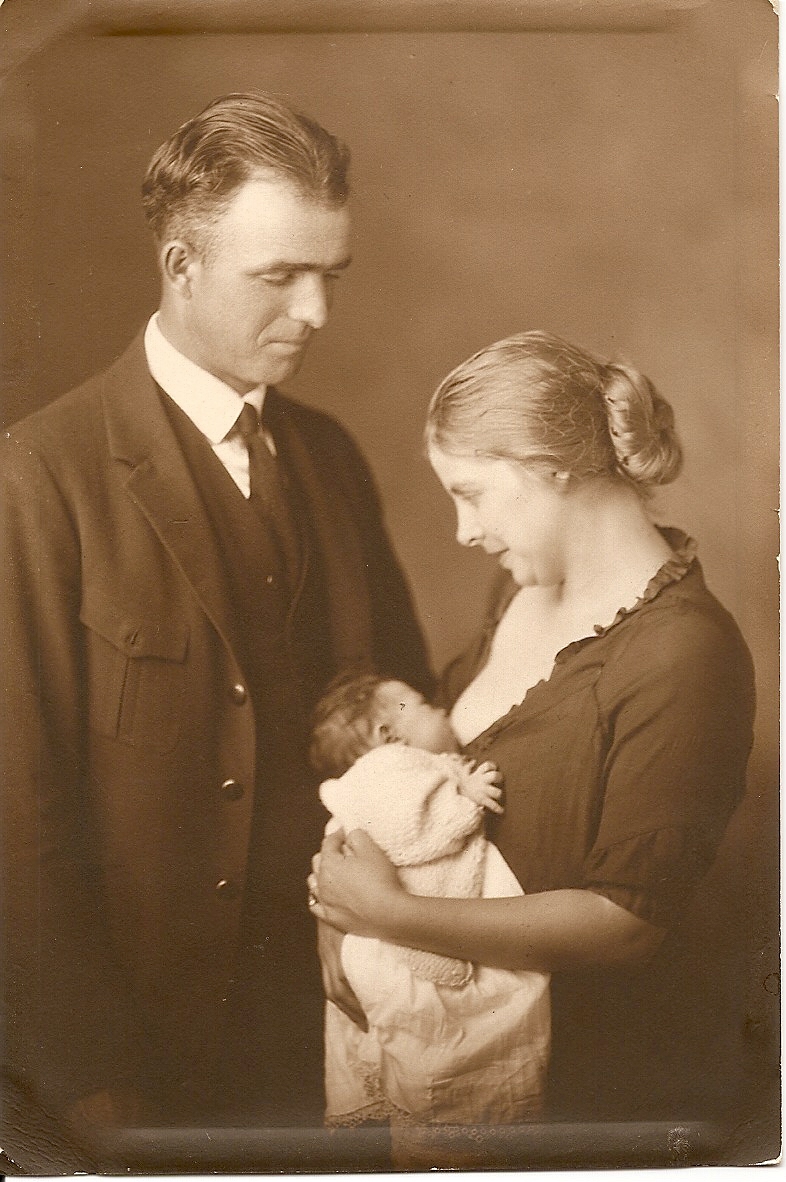Allie Schroeder has had seven children altogether, with each one of them being born in a different state and with one being adopted. She is a devote Baptist, and she faithfully attends church at Leon Valley Baptist Church. She currently lives in San Antonio, Texas. A couple of things that she enjoys doing include sewing and giving private music lessons. I came to know Mrs. Schroeder several years ago, and she has been my music teacher for about five years now.
TRANSCRIPTION
Describe some things about the Great Depression. What do you remember most?
Ok, it started in the thirties. I was born in 1924; I was about six years old when the Depression really hit. And, umm, it started out that nobody had any work…and you'd see men sitting in town in the filling station just waiting, gossiping maybe. They didn't have any jobs, but what people did was depend on each other. And nobody had anything so they just bartered between each other, a lot. Ok, and people who lived on a farm were a little better off 'cause we could raise something to eat. The people in town had a much worse time - long lines waiting for food you know. But, the Depression years brought a lot of, umm, problems with the weather…the farmers couldn't plant their fields. They couldn't even buy the seed. And if they did have a crop they couldn't get anything for it. I know we had a crop one year and it was only worth three cents a bushel; and, it wasn't worth taking into town so Mother tried to make cereal, grind it up, [and do] different things with the wheat. But, it finally got so many weevils in it that it had to be destroyed, ha-ha. And the Depression was really - the banks and everything - we would hear stories about different people committing suicide that were wealthy and they'd lost everything in the stock market. And those - they would just commit suicide. And [there was] a lot of that that happened during the Depression; and they just had no hope, you know, and gave up. And there was just no money anywhere. We had no electricity in those days; we had to use oil lamps. Only very few wealthy people had electricity and some [people] in the cities - if you live there you might have electricity. So, with all those catastrophes people managed to live, you know…we'd raise a pig and mother would raise chickens, and uhh, you still had your magazine salesmen that came down and try to sell magazines.
Who was the main provider for the family and what did he do?
My father was the main provider. Well, he didn't do anything for a number of years; he didn't have a job. All we had was what little bit we could get off the farm. And fortunately, my grandfather and grandmother - they did have money because of the oil wells they had - but, they would supply us with food when we needed bread, you know. And that went on until…it was almost ten years, I believe, before we started getting any income and Daddy finally got a job in the oil fields again. And that was the only income we had.
Did your family receive any government aid or anything?
No. They received no government aid of any kind. We did have - my cousin did come to live with us…umm, she had heart trouble, and Mother took care of her one year. And she [the cousin] did receive - her mother received some things from the government like…I can't remember what it was called…I think she got a couple of dresses or something. I don't know. It wasn't much; they didn't get much.
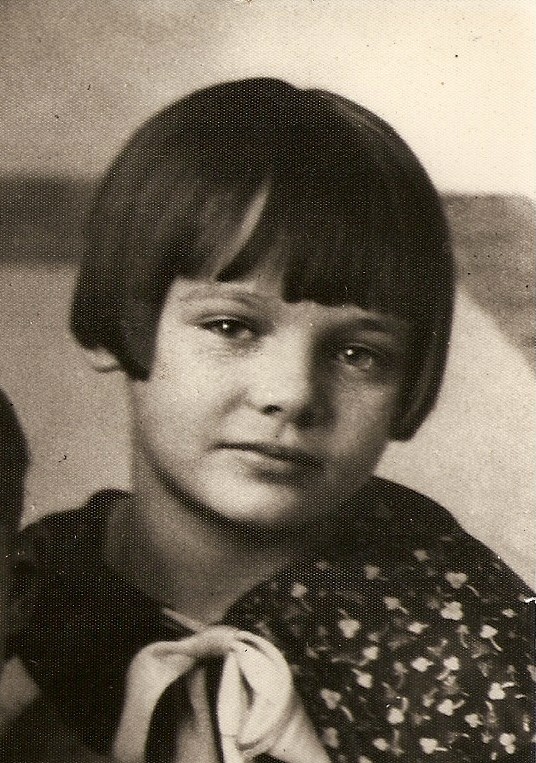
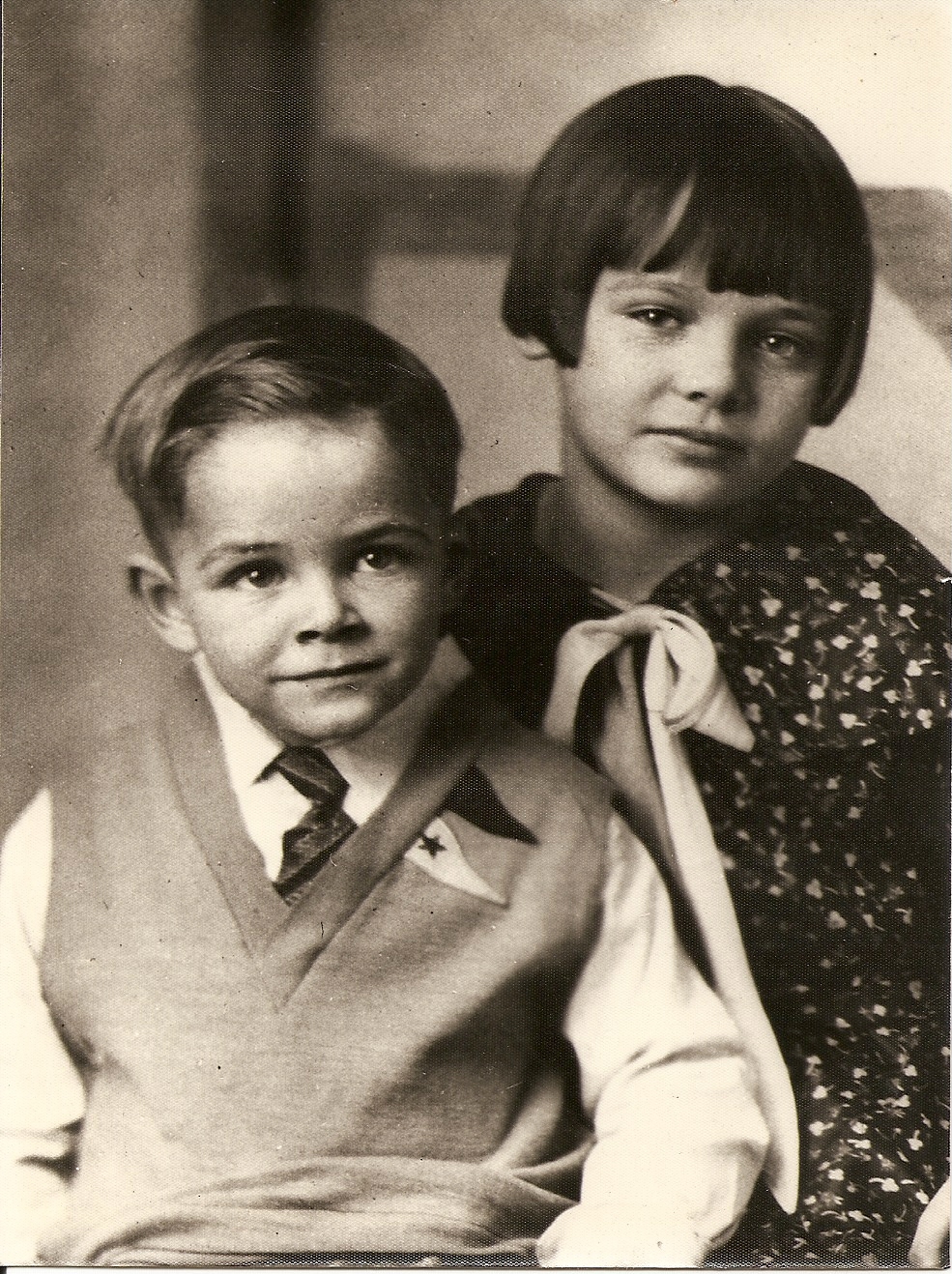
Did you and your siblings attend school during this time period?
Oh yes, we went to school. The reason we had school is because it was paid for by the oil industry. It was in the oil district, and so, they had plenty of money to pay the teachers. And we had a good school, and we also had bus transportation - we were one of the first consolidating school systems. We had plenty of school books, and they furnished everything at school. We even had paper covers for our books. And they furnished us with pencils and tablets. Our school system was wealthy because of the oil industry.
Did any of you have to drop out of school in order to work or anything?
No, I didn't have to drop out of school - but I didn't have shoes! Didn't have shoes until way in the winter time when they'd get enough money to buy shoes when it'd get so cold we couldn't go barefooted, ha-ha.
What were some of the kinds of foods you would have to eat?
The kind of food we'd have to eat? Red beans and cornbread. That was our basic food. Now sometimes [we'd have] butter beans or black-eyed peas, and Mother would raise chickens and we'd have a chicken. We'd have a chicken to eat every Sunday. And then, the men would hunt for rabbits to have some meat to eat. We had to be careful though a certain time of year because rabbits carried a disease that could kill you; so, they were real careful when they hunted for rabbits. And they hunted for doves, so we had some food there. Holidays? Well, for Thanksgiving they went out and the men would hunt for a turkey - and they usually got one. If they didn't, my grandmother raised turkeys so, we always had a turkey for Thanksgiving and the usual stuff that goes with Thanksgiving dinners. And umm, we always managed to have food to eat even if it was beans all the time, you know. And Mother would plant a little garden and we'd have, umm, a little onions to eat - fresh onions with the cornbread and beans. And she'd have a few green beans canned up, and that we'd eat during the year. So, our main diet was just the beans. I love them till this day! Ha! I still go to Jalisco and order refried beans, ha-ha.
What types of clothing did you have?
Type of clothing? Well, usually it was homemade, you know…they would sew things. And I had a few dresses made out of flour sacks…yeah, uhuh. And I had a few hand-me-downs from cousins that lived out east; they'd mail clothes to us from New York. And I remember one year I wanted a coat so bad - and I didn't have a coat, and I had outgrown everything - and Daddy took me to town and bought a coat on timed-payment and pennies, ha-ha. I was so proud of that coat!
What would you use for transportation?
Transportation? We always had a car - uhh, a Model A Ford. And I learned to drive with that car too. And we always had transportation. And then, one year they turned one car in that our grandfather had given us then went and bought the school bus. So, we didn't do a lot of walking. We lived on a farm where you had to have transportation to get to town and to take any products to town. Mother used to go to town and sell our chickens house to house, you know, at homes. And she would sell cottage cheese too - homemade cottage cheese, and she also did butter and take some butter in as well - butter and sometimes eggs. And we had a lot of train transportation in those years, and uhh, people went on long trips by train. And finally, the busses became more popular and there was bus travel too. But, it was train before.
What kinds of stores did you have? What were they like? What could you buy?
Oh stores! Well, I mentioned JCPennys. JCPennys was a department store; they had clothing just like they have nowadays. But in those days, they didn't have cashiers in each department. They had one cashier - usually it was upstairs - and they had an apparatus that you'd put the money in, this little can, and put it on this trail thing and it would pull it all the way up to the cashier. And [it was only] one cashier that cashed all of the merchandise that was bought. And they did that - they had that in the stores for many years. But, they finally changed; they have cashiers in each department now. But, they didn't then. We had, umm, in town the A&P and Piggly Wiggly, and they had hardware stores that sold different things. Now, I remember my mother wanted to buy a little tricycle that was at the hardware store for my brother - he was young yet. Yeah, we had hardware stores. We had lumber companies too and gasoline stations, oh yeah, and granary bins that would bring the grain in. But, you couldn't sell it [the grain]; it wasn't worth anything, hardly.
What types of things would you do for fun and entertainment?
Oh, for fun?! Oh well we didn't have all that stuff they do nowadays. No electronic toys or stuff like that. We'd play marbles in the dirt. And we'd, umm, got an old bicycle one time somewhere, and we learned to ride that. But, the marbles was a big game outdoors for us kids. And we'd play baseball. I'd play - well, I had brothers, no sisters so, I played baseball with them. And we'd rig up a little tin cans with a string on it and [have] another kid [with another] tin way off in the distance, and we'd use them for telephones. We'd talk to each other on it, ha-ha. We used to play on the roof of the house. It was a two-story home. And we'd get on the porch and get up on the roof, and we'd play tag with each other up on the roof. I guess my mother may have had heart failure [from that], but we had fun! I'm telling you we had fun - playing baseball or playing tag with each other! When it rained we'd put our swim suits on and go out and stand out to get wet. That was fun! That was the kind of fun we had. We did go swimming; we would go to the river and go swimming. And that was our main recreation. That was it. We didn't have a TV, of course. And umm, we did have radio; radio just came in, you know, [and became] popular in the twenties. And I remember listening to the radio a lot. And I must've been a crazy kid 'cause I liked to listen to the opera. And then, we liked to listen to Hopalong Cassidy, the old radio shows, and Gene Autry, and some of that stuff. We watched [listened] a lot. Anyways, our recreation - that was about it. Oh I - well, it was recreation for me really…I learned to play my saxophone. We had an old man that came around in the country-side and gave music lessons to everybody for twenty-five cents; and, he would take us to different places. We'd go to the county fair; one time we went to Fort-Worth stock show and put on our show. And also, I'd go to town on Saturdays, and we used to play in town, upstairs, above the theater, and practice every Saturday. Then, later on the American Legion had a band. Of course, that was supposed to be all boys, but I played in it all the time; but, when they got to go to Chicago, they wouldn't let me go. My brother got to go, and I was so upset I didn't get to go.
How would the family manage with someone who became ill?
Oh, when we were sick we had a family doctor in town, and we'd go see him. And sometimes we could pay him, and sometimes we didn't [couldn't]. And that was in the old, old days early when you didn't have anything. Maybe you'd take the doctor a chicken or barter to pay for your services, you know, with merchandise from the farm. That's all you could do. There were hospitals, but most people didn't go to the hospital. They didn't even have babies in the hospital; they had them at home. They didn't start having babies in the hospital until in the forties.
Describe some things about the life at home with your family.
Well, it was drought years. We had years when we didn't have water, and we had to haul it from town and put it in the cistern to have something to drink. And people in town had water, but out in the country we didn't have water. And we had it - the cistern - we'd fill it up, and it didn't last very long - the washing, and drinking, and everything, cooking. It [the water] would be gone before the year was over, you know. And then, we had to cut wood in order to have wood for the fire; we cooked on a wood stove. My mother was well off because of my grandfather…he bought her a gasoline pump stove. Fancy thing. And it was really convenient. Oh, Mother had a gasoline iron! That was modern! She got that thanks to her father. [Before,] we had to put the irons on the stove to get them hot. Yeah, well, we had a washing machine. When the first years we didn't Mother washed with a rub board in the tub. And later on, we had a gasoline one, but you had to start it up like a motorcycle, you know; it had a kick start on it. And you had to heat the water - we didn't have any way of heating - we didn't have hot water. We had a cauldron out in the yard and we'd put firewood under it and got the water hot and poured it in the washing machine. A couple of tubs - one of cold water, one of warm water - and Mother washed all the clothes with that. And it had a wringer on it; you'd push it through the wringer - run it through the wringer to get all the water out. So then, we hung them - some on the porch and some on the fence 'cause we didn't have enough line to hang them on our line. But, we survived. That's the way we did our laundry. In the winter time, we'd stay inside a lot. And it rained - we were always happy when it rained because then you didn't have to work on the farm. And umm, a typical day during a lot of those years…we had about seven milk cows, and we'd have to go out and milk the cows in the evening. In the morning my mother and dad did it because we had to get to school. And we'd do our homework at night; by lamp light to begin with, and then later on they were able to get a gasoline lantern that you pumped up, you know, and it made better light. But, in the evening it was our job to milk the cows. And we had calves that sucked to get the milk going, and then we'd pull the calves off and tie it to the post and then finish milking the cow. We'd get the rest of the milk, and we'd take it to the house and put it in the separator. We didn't have an electric separator; it was a water separator. And then, the cream would rise to the top, and then, we'd open the spicket and catch the whey milk; and, we'd use that milk to give to the pigs and chickens, yeah. And then, we collected the cream in another can until we got about ten gallons of cream; and then, we'd take it to town and sell it at the creamery. And that's how we lived.
What were some of the difficulties your family went through during this time?
Well, we never went hungry; that wasn't a problem. The problem was when we had the [sand] storms, and the [sand] fleas, and the grasshoppers. And the grasshoppers ate all the leaves off the trees and anything we had in the garden; they just gobbled everything up. They really did tear up stuff! But, I don't remember us ever being without food; no, we managed to have some. But, I'm saying we were lucky to live on the farm; now people in town had a hard time. Uhh, the men that didn't have jobs, they just had to - I can't remember - there was government foods that some had; but, I wasn't exposed to it, so I don't know about that. All I know that people who lived on a farm were so much better off than those who lived in town.
What were your feelings during the Depression and what was your attitude towards it? Were you ever unhappy or anything?
No, we were very happy. We were very happiest children. I was never an unhappy child. We played - I mean to tell you we played! There might have been things we didn't have, you know, but anyways, we survived. I remember writing my mother a letter one time - she was always so concerned because we didn't have this and that - and I told our mother that was the happiest time of my life…because we were always together. We just enjoyed everything. Oh, I remember one time we didn't have any bacon, and I was so unhappy 'cause we had no bacon. But, uhh, that was short lived, ha-ha. We survived it. It's not as bad as people make it out, you know. You just learned to take care of each other.
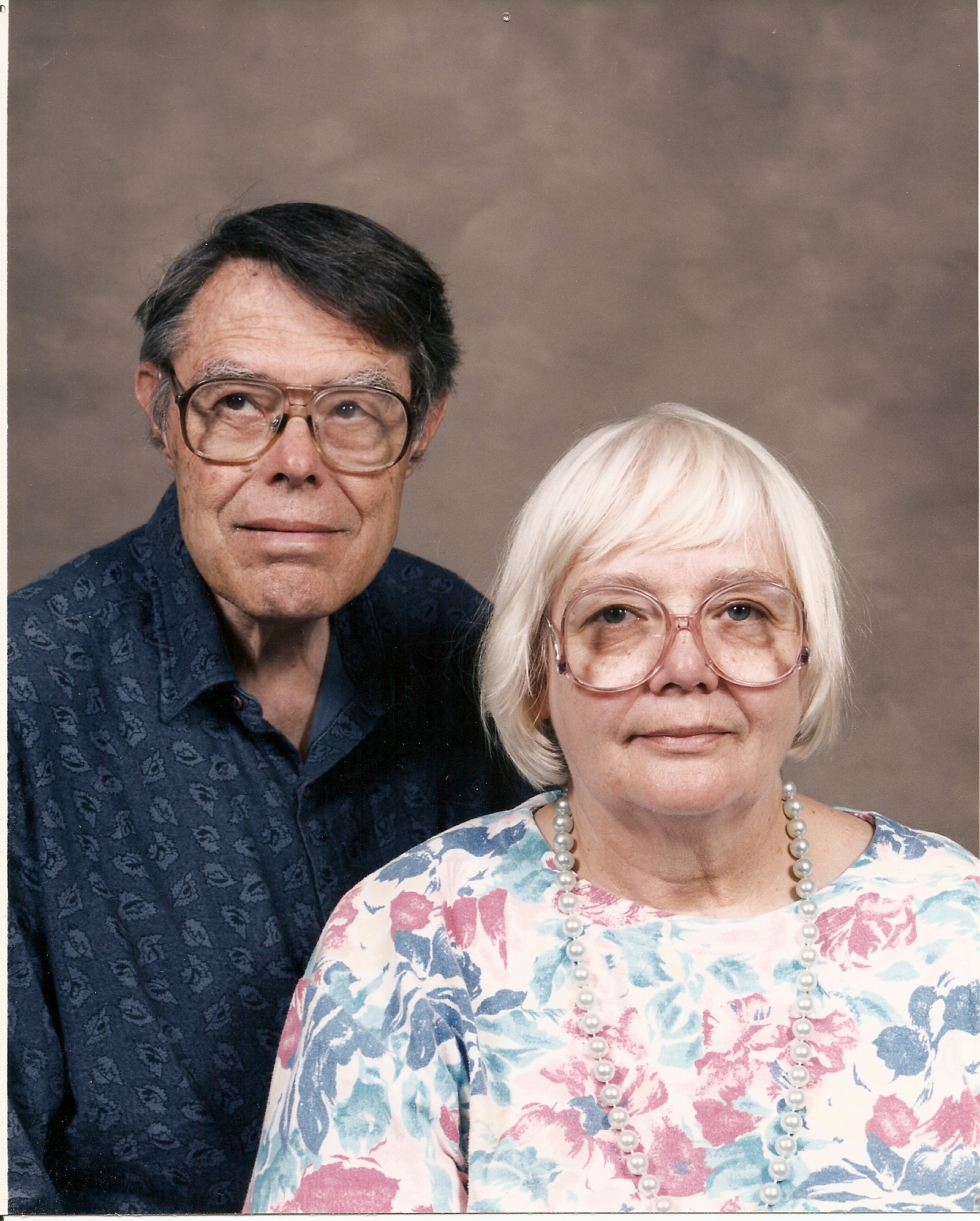
Were you afraid of anything like losing the house or something during the Depression?
No. My grandfather and grandmother had bought the home for them - the farm for my mother and dad, so we didn't need to worry about that. But, there were other people that just lived wherever they could find a place.
Is there anything you regret about your life when during this time period?
Anything I regret about that time? No, not at all. No. I'm telling you I was a happy child. I was just a child - I might've been if I was older at the time, maybe. But, no. We had food, we had transportation, and I had my mother and father. It's not like nowadays when so many people are divorced and single parents and all. It was a shame to get pregnant, you know; if girl got pregnant, at school she was ostracized. It was a disgrace! People just didn't go out and play around like they do now. And you didn't have that many divorces either; they were pretty sure before they got married, I think, ha-ha.
At the time, what did you think about the president and his plan to get the country out of the Depression? Did you think it would work?
Well, we were happy about that. Yeah, it worked. I don't remember voting for a president 'cause I wasn't old enough to vote, but I remember rooting for Roosevelt. We were sitting in front of the radio listening to the news when he was elected. And we were so happy when he was elected again.
How did your lives start to change as the Depression began to end?
It was just slowly. People started getting jobs again, and my father got a job in the oil field again when there was more money available. And uhh, people started getting jobs here and there; and finally, they devaluated things and made the dollar worth something and got out of the Depression. But, it took almost ten years for them to solve it.
Would you say that the Great Depression has been a good and/or necessary experience in your life?
Well, I think it [was]. I learned a lot of things from it. I really did. I learned how to live without and didn't feel bad about it. I can go to town and live and be real happy, but how many people have been born and raised in town and can go to the farm and live and be happy? Not many. So, I mark it up as a good experience - something worth while that happened in my life. It keeps me from being worried so much about being without, or this or that happening. It was a good time. As far as I'm concerned, it was a good time.
Is there anything else you would like to mention in addition to this interview?
Well, I learned a lot of things. I learned how to cook on a wood stove, I learned how to milk a cow, I learned how to drive a truck, and I learned how to drive a school bus. And I learned how to do a lot of things because it was the Depression years really. And I was fortunate to have a mother who drove too; it was unusual for a woman to be driving in those years. And she was a good driver. [Of] course, when I got older I wanted to drive too. And they needed somebody to take things to market, and so, I would drive the wagon to town. Well, I don't think it was a bad time in my life at all. A lot of people suffered, sure, but we didn't. But, it did happen [the Depression], and it was good for us. We learned to live without, uhuh, and we didn't think a thing about it. I don't care if there was food, or clothing, or recreation…we just adjusted to whatever we had.
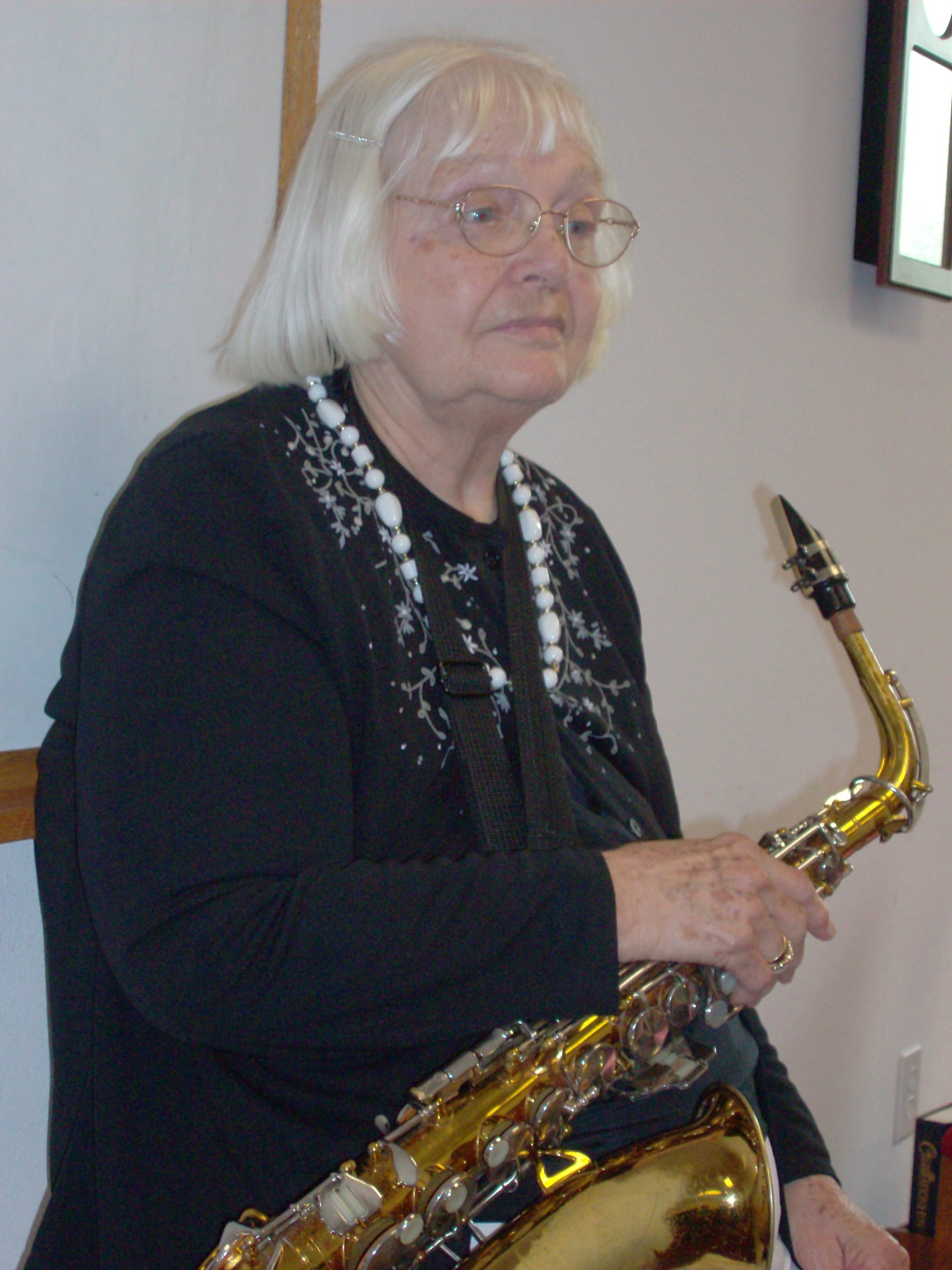
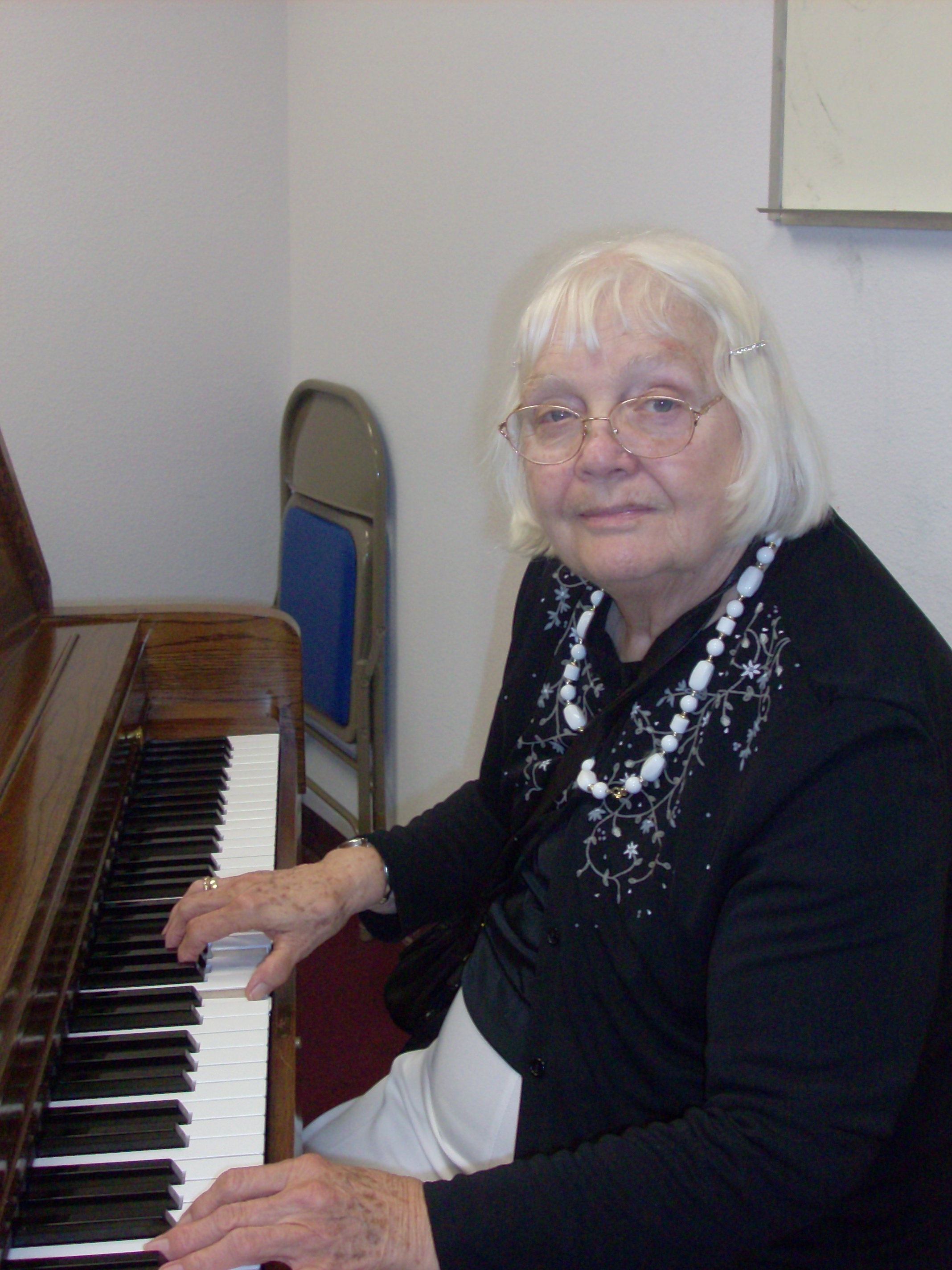
ANALYSIS
My interviewee, Allie Jo Schroeder, provided much information and many interesting stories about the Great Depression. She talked about the everyday life that she and other people experienced; about the different types of food, clothing, transportation, stores, and entertainment that they had; and about her feelings and some of the difficulties that she and her family experienced during this time. As she was telling me her stories, I was surprised to learn many things about her life that I had not known before, such as that she often went to school barefooted, the types of food and clothing she had, and the different things that she would do for entertainment.
There was one time during the interview that Mrs. Schroeder started to become somewhat emotional. As she started talking about the family always being together during this time, her eyes became a little watery, and her voice became somewhat shaky. You can tell that she truly misses those times. Afterwards, I began thinking about what I could use as a six-word memoir of her life. At first, I couldn't think of anything; but, as I went back and listened to the recording, I heard her say something that was perfect: "I learned how to live without." That is one thing that she often mentioned during the interview - that she learned to be content through whatever circumstances and with whatever she had, and that she is truly grateful to God for putting her through that experience and teaching her that.
The oral history process, I believe, is an effective way of learning the past. It provides insight of someone's experience with the topic, and in its own little way, helps us to better understand it. However, there is the possibility that the interviewee might have some difficulty remembering or might not tell the truth for some reason, and so, one has to be careful and should make an attempt to verify the interviewee's stories. But like I said earlier, it is not just knowing about the subject, but also about digging into it and exploring by getting to know someone's direct and personal experience that makes the oral history process both effective and interesting.
TIMELINE
- Born on November 20, 1924, to Scott and Maudie Sutton in Olney, Texas
- Begins attending grade school at age six in 1930
- Graduates in 1942 from Harold High School in Texas
- Marries William F. Schroeder on August 25, 1945, in Electra, Texas
- Graduates from Drake University (Des Moines, Iowa) in 1946 with a bachelor's degree in the education of music
- Moves to San Antonio, Texas, in 1946
- First child, Lora Lee Schroeder, born in 1948
- Last child, Allan Lee Schroeder, born in 1960
- Adopts a baby girl, Paula Elena Schroeder, in 1977 while in Mexico
- Son, Allan Lee Schroeder, passes away in 1992
- Husband, William F. Schroeder, passes away from Alzheimer's disease in 2002
- Son, Dale Lee Schroeder, passes away in January of 2009
- Interviewed on March 14, 2009, by Abraham Ortega
ANNOTATED BIBLIOGRAPHY
- The Handbook of Texas Online is a multidisciplinary encyclopedia of Texas history, geography, and culture sponsored by the Texas State Historical Association. Copyright © Texas State Historical Association. Published by the Texas State Historical Association and distributed in partnership with the University of North Texas.
- Cost-of-Living Calculator. This calculator uses the Consumer Price Index, which reflects the cost of items relative to a specific year, to convert dollar amounts between two different years. With this calculator, you can compare the real buying power of any dollar amount you enter in the box. The source for the data is the Bureau of Labor Statistics. Copyright 2009 American Institute for Economic Research.
- Concept Carz, the premier website for auto enthusiasts seeking vehicle information from concept to production and from vintage to modern. Here you will find in-depth articles, news, reviews, high-quality photography, and desktop wallpaper. Automobile information, history, and statistics from concept to production. © 1998-2009 Conceptcarz.com
- Groceteria. Established in 1999, Groceteria.com is a site about the history of the American supermarket, from both an architectural and a business perspective. As a general rule, the site covers events and stores of the 1920s through the 1980s. © Copyright David Gwynn. This is a personal hobby site. It is neither affiliated with, authorized by, nor endorsed by any grocery retailer nor any other corporate entity.
- Piggly Wiggly. The home of Mr. Pig…come and learn about our colorful history, our smiling mascot - Mr. Pig - or find the Piggly Wiggly store nearest you. For Mr. Pig fans, be sure to check our Pig E-Store when you click on merchandise for items featuring our lovable character. © 2007 Piggly Wiggly Company.
- Hopalong Cassidy. This site is dedicated to Hopalong Cassidy, the generations who know and love him, and to keeping the legend alive for all those that follow. Copyright © 2004 Sagebrush Entertainment, Inc. Website created by Imagine IT! Technology Solutions for Business.
- Find A Grave. See the graves of thousands of famous people from around the world. Find the graves of ancestors, create virtual memorials, add "virtual flowers" and a note to a loved one's grave, etc. Find A Grave was created in 1995 and is largely operated by its founder, Jim Tipton.
Return to Oral History Projects
